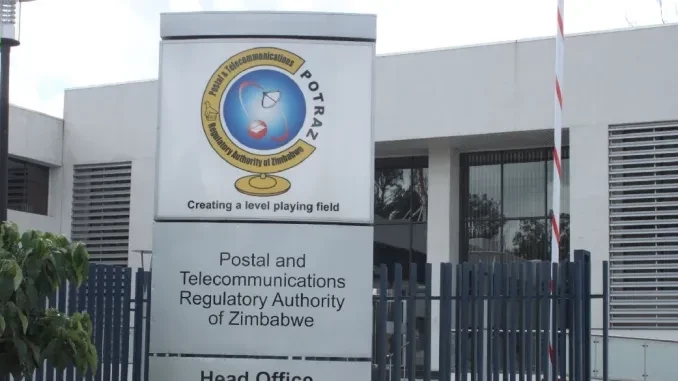
ZIMBABWE’S postal and courier services volumes registered a 29,48% drop in the first quarter of the year, as digital communication takes centre stage, a new report shows.
The Postal and Telecommunication Regulatory Authority of Zimbabwe (Potraz) report noted the continued growth in digital services, technological advancements and the push to have reusable materials to combat climate change contributed to the decline of postal and courier offerings.
“In the quarter under review, postal and courier volumes declined by 29,48% to record 264 856 items from 375 599 recorded in the previous quarter. The decline in postal and courier volumes has been a trend in most countries,” Potraz said in its first quarter report for 2024.
“This can be attributed to a surge in the use of digital communication facilities, e-commerce and electronic payments which have reduced reliance on traditional postal and courier services for such services like letter delivery and bill payments.”
Potraz said the total number of operational postal and courier outlets by the licensed operators remained unchanged from the fourth quarter of 2023 to the first quarter of 2024.
This resulted in the postal density unchanged during the first quarter of 2024.
During the period under review, postal and courier revenues grew by 62,51% to ZWL$75,68 billion from the previous quarter.
Operating costs grew 127,55% to ZWL$117,34 billion during the period under review, from the 2023’s fourth quarter, while capital expenditure rose 45% to ZWL$1,33 billion.
- Former minister loses appeal against sentence
- So, is it a currency?
- Navigating Zim’s new monetary frontier: A profound analysis and real estate implications
- New RBZ boss talks tough
Keep Reading
“Operating costs for the postal and courier sector increased at a faster rate as compared to the growth in the revenue both in nominal and in real terms,” Potraz said.
“This largely attributable to the drastic depreciation of the local currency against the USD [United States dollar] which was recorded in the first quarter of 2024.”
In the outlook, Potraz said the introduction of the Zimbabwe Gold (ZiG) currency had implications for the telecommunication sector as it would impact transactional processes, pricing strategies and cost structures.
“Telecom operators have been adapting to the transition to the new currency, addressing challenges related to currency conversion, financial reporting and customer billing,” Potraz said.
In the outlook, the turbulence experienced by the sector in the first quarter is expected to subside on account of improved macroeconomic stability following the introduction of the new ZiG currency, which to date has remained stable, Potraz said.
However, on the demand side, the regulator said the sector could suffer the negative spill-over effects of the El Nino-induced drought, which is likely to reduce aggregate demand.
“The drought is likely to result in reduced disposable incomes, especially for agro-based businesses at both the primary and secondary production levels, thereby forcing consumers to cut back on discretionary spending on data-centric ICT applications such as Netflix, YouTube, among others,” the regulator said.
“This may result in reduced consumption of services. On the supply side, the El Nino-induced drought may impact on power generation, as the water levels at Kariba Dam have not risen. This has an indirect effect on the sector, as it heavily relies on commercial power for the provision of telecommunication services.”
Potraz added: “Power cuts owing to depressed power generation impact quality of service and increase cost of service provision for operators as they are forced to rely on alternative sources of power.”










